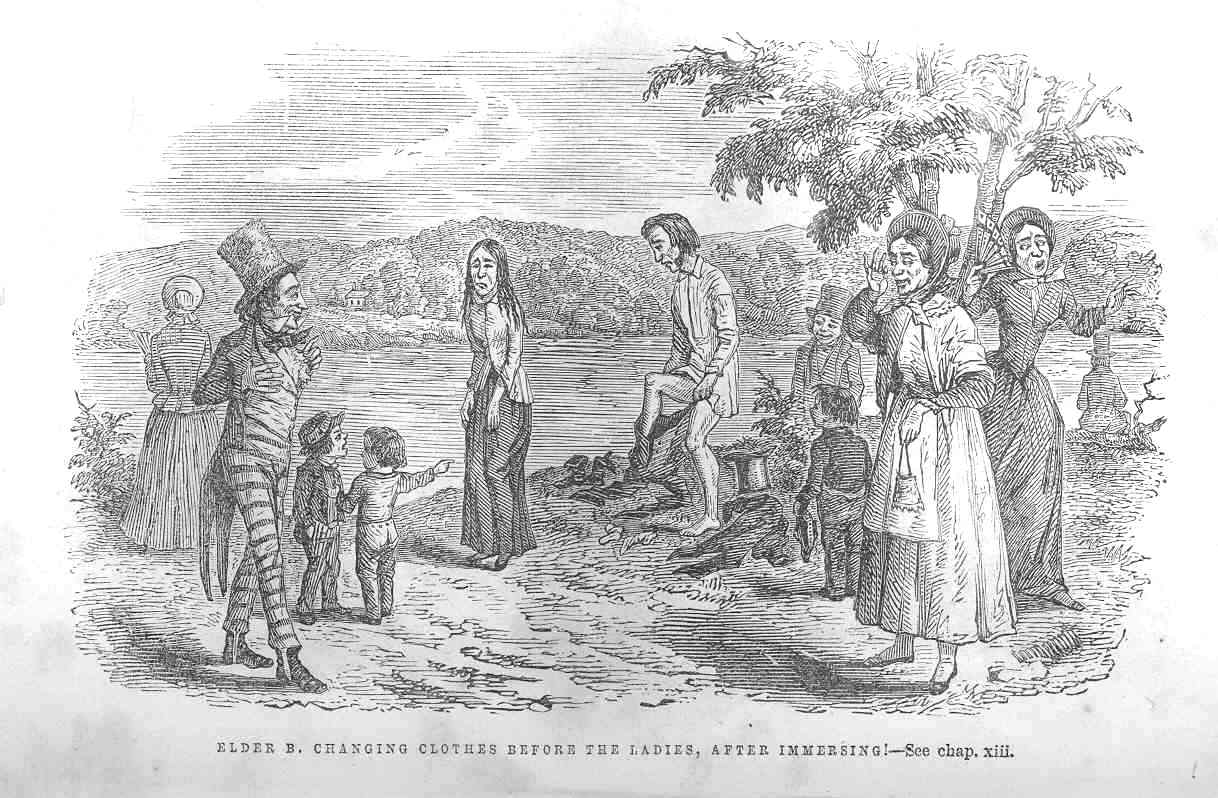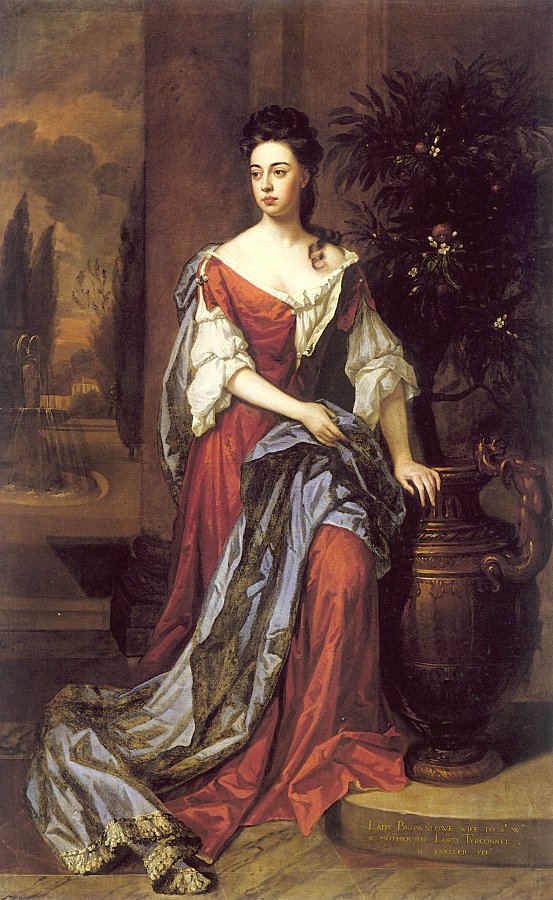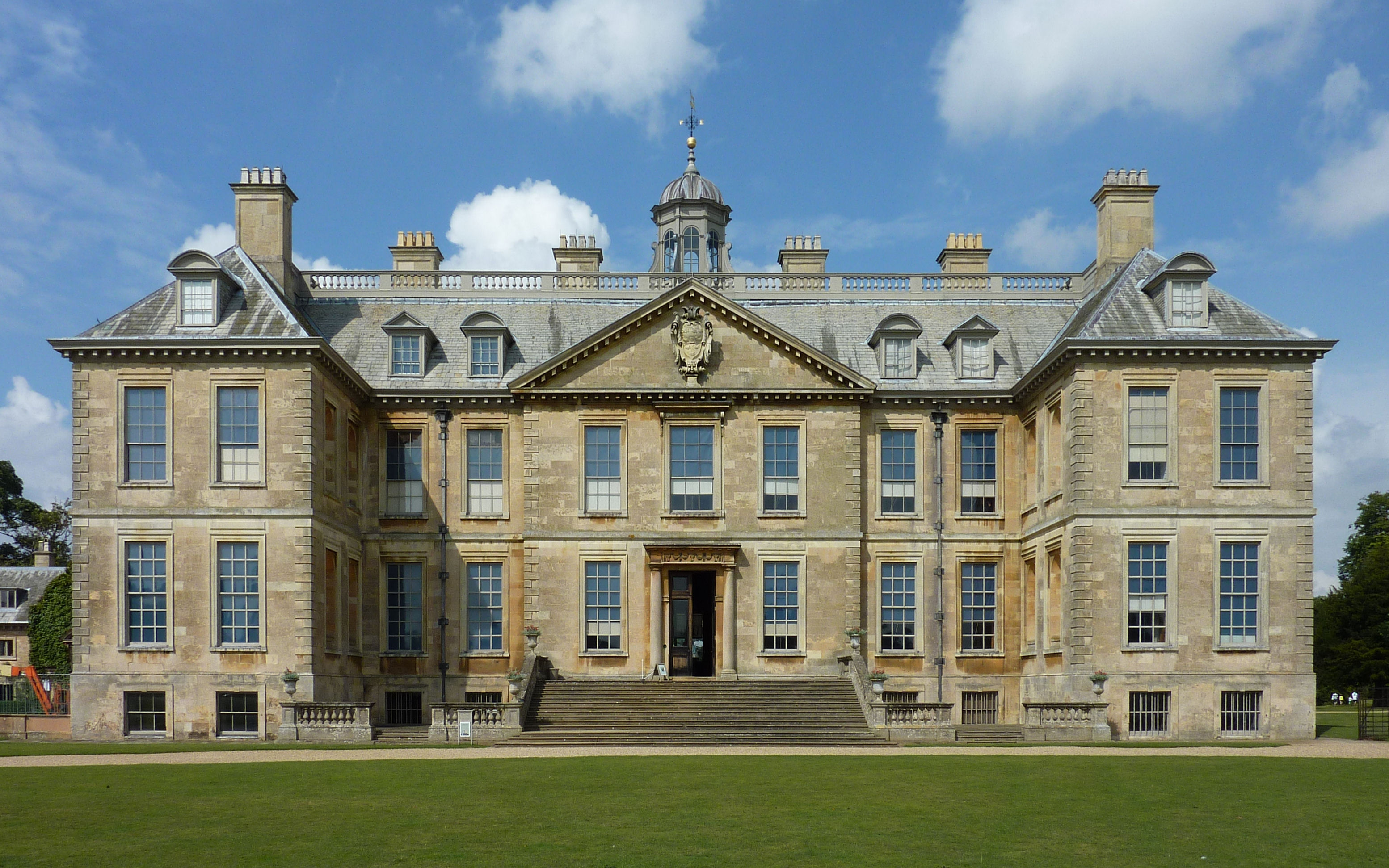|
William Brownlow (1726-1794)
William Brownlow may refer to: * William Gannaway Brownlow (1805–1877), governor of Tennessee * Sir William Brownlow, 1st Baronet (c. 1595–1666), English politician and barrister * Sir William Brownlow, 4th Baronet (1665–1701), British Member of Parliament for Peterborough and Bishop's Castle *William Brownlow (1683–1739) (1683–1711), Irish MP for Armagh County 1711–1739 *William Brownlow (1726–1794), Irish MP for Armagh County 1753–1794 and Strabane * William Brownlow (1755–1815), Irish MP for Armagh County 1795–1798, British MP for Armagh *William Brownlow, 3rd Baron Lurgan (1858–1937), Anglo-Irish aristocrat, landowner, hotel proprietor and sportsman *William Brownlow (British Army officer) (1921–1998), British Army officer and MP for North Down *William Brownlow (bishop) William Robert Brownlow (4 July 1830 – 9 November 1901) was an English prelate of the Catholic Church. He served as Bishop of Clifton from 1894 to 1901. Born in Winslow, Buckinghams ... [...More Info...] [...Related Items...] OR: [Wikipedia] [Google] [Baidu] |
William Gannaway Brownlow
William Gannaway "Parson" Brownlow (August 29, 1805April 29, 1877) was an American newspaper publisher, Methodist minister, book author, prisoner of war, lecturer, and politician who served as the 17th Governor of Tennessee from 1865 to 1869 and as a United States Senator from Tennessee from 1869 to 1875. Brownlow rose to prominence in the late 1830s and early 1840s as editor of the '' Whig'', a polemical newspaper in East Tennessee that promoted Whig Party ideals and opposed secession in the years leading up to the American Civil War. Brownlow's uncompromising and radical viewpoints made him one of the most divisive figures in Tennessee political history and one of the most controversial Reconstruction Era politicians of the United States. Beginning his career as a Methodist circuit rider in the 1820s, Brownlow was both censured and praised by his superiors for his vicious verbal debates with rival missionaries of other sectarian Christian beliefs. Later, as a newspaper publi ... [...More Info...] [...Related Items...] OR: [Wikipedia] [Google] [Baidu] |
Sir William Brownlow, 1st Baronet
Sir William Brownlow, 1st Baronet (c. 1595–1666) of Humby in Lincolnshire, was an English politician and barrister. Origins He was the second son of Richard Brownlow (1553–1638) of Belton in Lincolnshire, which manor he purchased, Chief Prothonotary of the Court of Common Pleas, by his wife Katharine Page, a daughter of John Page of Wembley in Middlesex. His elder brother was Sir John Brownlow, 1st Baronet (c.1594-1679) of Belton, who was created a baronet "of Belton" one day before himself. Career He was educated at St Mary Hall, Oxford, where he graduated with a Bachelor of Arts in 1610 or 1611. In 1617 Brownlow was called to the bar by the Inner Temple. Despite having been created by King Charles I a baronet, "of Humby, in the County of Lincoln", on 27 June 1641, one day after the baronetcy of his elder brother, he became a Parliamentarian during the Civil War. From 1653 he sat in the Long Parliament for Lincolnshire. Marriage and children In about 1624 he married Eliz ... [...More Info...] [...Related Items...] OR: [Wikipedia] [Google] [Baidu] |
Sir William Brownlow, 4th Baronet
Sir William Brownlow, 4th Baronet (5 November 1665 – 6 March 1701) of Belton House near Grantham in Lincolnshire, was an English Member of Parliament. Origins He was the younger son of Sir Richard Brownlow, 2nd Baronet (died 1668) of Humby in Lincolnshire, by his wife Elizabeth Freke, a daughter of John Freke of Stretton in Dorset. Career He was educated at Sidney Sussex College, Cambridge. In 1689 he was elected as a Member of Parliament for Peterborough in Lincolnshire, a seat he held until 1698, and then represented Bishop's Castle from 1698 to 1700. In 1697 he succeeded his elder brother Sir John Brownlow, 3rd Baronet (1659–1697), builder of the surviving Belton House, who committed suicide, as the 4th Baronet, and inherited his estates including Belton, which the 3rd Baronet had inherited from their childless great uncle Sir John Brownlow, 1st Baronet (c. 1594–1679) of Belton. Marriages and children He married twice: *Firstly to Dorothy Mason (d.1700), eldest daugh ... [...More Info...] [...Related Items...] OR: [Wikipedia] [Google] [Baidu] |
William Brownlow (1683–1739)
William Brownlow (1683 – 27 August 1739) was an Anglo-Irish politician. He was the eldest son of Arthur Chamberlain Brownlow and Jane Hartstonge, daughter of Sir Standish Hartstonge, 1st Baronet of Bruff, County Limerick, a Baron of the Court of Exchequer (Ireland), and his first wife Elizabeth Jermyn of Gunton Hall, Norfolk. His father was the son of Patrick Chamberlain and Letitia Brownlow, and adopted his mother's family name on inheriting the estate of his grandfather, Sir William Brownlow, who married Eleanor O'Doherty, daughter of Sir Cahir O'Doherty. He was educated at Trinity College, Dublin. Brownlow was elected to the Irish House of Commons as the Member of Parliament for Armagh County in 1711, and held the seat at subsequent elections until his death in 1739.E. M. Johnston-Liik''MPs in Dublin: Companion to History of the Irish Parliament, 1692-1800''(Ulster Historical Foundation, 2006), p.74 (Retrieved 26 February 2016). He married Lady Elizabeth Hamilton, da ... [...More Info...] [...Related Items...] OR: [Wikipedia] [Google] [Baidu] |
William Brownlow (1726–1794)
William Brownlow PC (I) (10 April 1726 – 28 October 1794) of Lurgan, Co. Armagh was an Anglo-Irish politician. He was the only son of William Brownlow MP and Lady Elizabeth Hamilton, daughter of James Hamilton, 6th Earl of Abercorn and Elizabeth Reading. Brownlow served as High Sheriff of Armagh for 1750 and was first elected to the Irish House of Commons as the Member of Parliament for Armagh County in 1753, styled The Right Honourable and holding the seat until his death. He was also returned for the Strabane constituency in 1768, but was replaced in 1769. He was an officer of the Irish Volunteers and one of the founding subscribers of the Bank of Ireland in 1783. He was generally seen as a reformer, although there were allegations that he misused public funds to improve his demesne. He married firstly Judith Letitia Meredyth, daughter of the Reverend Charles Meredyth, Dean of Ardfert, and had at least two sons: his heir William, and Charles. He married secondly Cath ... [...More Info...] [...Related Items...] OR: [Wikipedia] [Google] [Baidu] |
William Brownlow (1755–1815)
William Brownlow (1 September 1755 – 10 July 1815) of Lurgan, County Armagh was an Anglo-Irish Tories (British political party), Tory politician. He was the eldest son of William Brownlow (1726–1794) and his wife Judith Letitia Meredith from whom he inherited one of the largest landholdings in Armagh. He was pricked High Sheriff of Armagh in 1787 and succeeded his father as MP for County Armagh (Parliament of Ireland constituency), County Armagh constituency in the Irish House of Commons between 1795 and 1797.E. M. Johnston-Liik''MPs in Dublin: Companion to History of the Irish Parliament, 1692-1800''(Ulster Historical Foundation, 2006), p.74 (Retrieved 26 February 2016). In 1807 he was elected as the Tory Member of Parliament for Armagh (UK Parliament constituency), Armagh in the United Kingdom House of Commons, sitting for the seat until his death in 1815. He founded, with three partners, the private bank of William Brownlow Esq., & Co. He married in 1803 Charity, the da ... [...More Info...] [...Related Items...] OR: [Wikipedia] [Google] [Baidu] |
William Brownlow, 3rd Baron Lurgan
William Brownlow, 3rd Baron Lurgan Royal Victorian Order, KCVO (11 February 1858 – 9 February 1937) was an Anglo-Irish aristocrat, landowner, hotel proprietor, and sportsman. He was the eldest son of Charles Brownlow, 2nd Baron Lurgan. He was the chairman of the prestigious The Ritz Hotel, London, Ritz Hotel, the Carlton Hotel, London, Carlton Hotel, Booth's Distilleries, and others. In his younger years he was a keen jockey and golfer, and was reportedly one of the few peers to have ever had a hole in one on a golf course. He succeeded to his father's title in 1882. He was appointed State steward to the recently created Lord Lieutenant of Ireland, William Humble Ward, 2nd Earl of Dudley, Lord Dudley, in September 1902. He was the subject of caricatures by Max Beerbohm. Brownlow succeeded Harry Higgins as chairman of the Ritz upon his death in 1928, and was especially keen on attracting American guests to the hotel. He was a close friend of the Henry Herbert, 6th Earl of Carn ... [...More Info...] [...Related Items...] OR: [Wikipedia] [Google] [Baidu] |
William Brownlow (British Army Officer)
Colonel William Stephen Brownlow (9 October 1921 – May 1998"Colonel William Brownlow", ''Daily Telegraph'', 1 June 1998) was a British Army officer and Northern Irish Unionist politician. Early life and military service Brownlow was born in Portaferry, County Down. He was the son of Colonel Guy Brownlow and Elinor Scott, the daughter of Colonel George Scott (18th Hussars). He was educated at Eton College before joining the British Army following the outbreak of the Second World War. He was commissioned into his father's former regiment, the Rifle Brigade (Prince Consort's Own). Over the course of the war, Brownlow was wounded and Mentioned in Despatches three times. He retired from the military with the rank of major in 1954. He was awarded the rank of Honorary Colonel in 1973 in the Northern Irish Militia, part of the Royal Irish Rangers. Politics He held the office of Justice of the Peace for County Down in 1956 and was High Sheriff of Down in 1959. Brownlow was Deputy ... [...More Info...] [...Related Items...] OR: [Wikipedia] [Google] [Baidu] |
William Brownlow (bishop)
William Robert Brownlow (4 July 1830 – 9 November 1901) was an English prelate of the Catholic Church. He served as Bishop of Clifton from 1894 to 1901. Born in Winslow, Buckinghamshire on 4 July 1830, Brownow was the son of Reverend William Brownlow, Rector of Wilmslow, Cheshire. He was educated at Rugby and at Trinity College, Cambridge, where he graduated in 1852. In 1853 he was appointed Curate of Great Wyrley, Staffordshire. He subsequently served as curate at St Bartholomew´s, Moor Lane, at Tetbury, Gloucestershire, and at St. John´s, Torquay, before being received into the Roman Catholic Church on 1 November 1863. After further studies of theology at the English College, Rome, he was ordained to the priesthood on 22 December 1866. Back in the United Kingdom, Brownlow was appointed missioner at St Mary´s church, Torquay, in 1867, and Canon of Plymouth in 1878. He was appointed the Bishop of the Diocese of Clifton by the Holy See on 20 March 1894. His consecration to t ... [...More Info...] [...Related Items...] OR: [Wikipedia] [Google] [Baidu] |
Brownlow Baronets
There have been two baronetcies created for members of the Brownlow family, both in the Baronetage of England. Both titles are now extinct. The Brownlow Baronetcy, of Belton in the County of Lincoln, was created in the Baronetage of England on 26 July 1641 for John Brownlow. The title became extinct on his death in 1679. The Brownlow Baronetcy, of Humby in the County of Lincoln, was created in the Baronetage of England on 27 July 1641 for William Brownlow. He was the younger brother of the 1st Baronet of Belton, created a baronet one day before. For more information on this creation, see Viscount Tyrconnel. The ancestral seat of the Brownlow family was Belton House in Lincolnshire, built by Sir John Brownlow, 3rd Baronet, of Humby (1659–1697) Brownlow baronets, of Belton (1641) *Sir John Brownlow, 1st Baronet (c. 1595–1678) Brownlow baronets, of Humby (1641) *see Viscount Tyrconnel See also *Baron Brownlow *Baron Lurgan, held by the Brownlows of Lurgan, County Armagh ... [...More Info...] [...Related Items...] OR: [Wikipedia] [Google] [Baidu] |


